| Trouble viewing this email? Read it online. |

| November 6, 2020 | Submit a Note |
|
Rhiannon Giddens and Francesco Turrisi performed for Music at Noon as part of the Sinatra Fall 2020 Residency presented by the Center for the Arts and Humanities.
It has been a tension-filled and anxiety-producing week; I hope you are taking especially good care of yourselves and each other! The election aside, I am grateful to the Faculty Collaborative for Teaching Innovation, which completed a survey of undergraduates this week. Nine hundred undergraduates (out of a total of 5,595) completed a mid-quarter survey about their well-being, challenges and experience of remote instruction. Not surprisingly, given current affairs, 75% of the survey respondents said they were very or extremely concerned with "uncertainty about the future.” But I was most interested and moved by the following finding, which I quote: The largest number of students who report having faculty who asked for feedback are first-year students: 77% of first-years agreed faculty had sought feedback, compared to only about 50% of students in the other class years. When we look at the relationship between soliciting feedback and how students say their courses are going, we see that of the students who reported that faculty had asked for feedback, 75% said that their classes were going well this quarter, compared to 26% of students who said they had not been asked. I am so grateful to you, our dedicated faculty and staff, who are showing such concern and compassion for the students. Relatedly, see the note below on Assistant Professor Chan Thai’s (Communication) study entitled "cura personalis": Social and Emotional Health Outcomes of First- and Second-Years Living in a Well-Being Focused Residence Hall. Cura personalis is not just a Latin phrase; it really makes a difference. In this especially stressful season, I invite you to embrace and practice it not just in the Santa Clara University community, but with yourselves and families as well. Sincerely, Daniel
Highlights
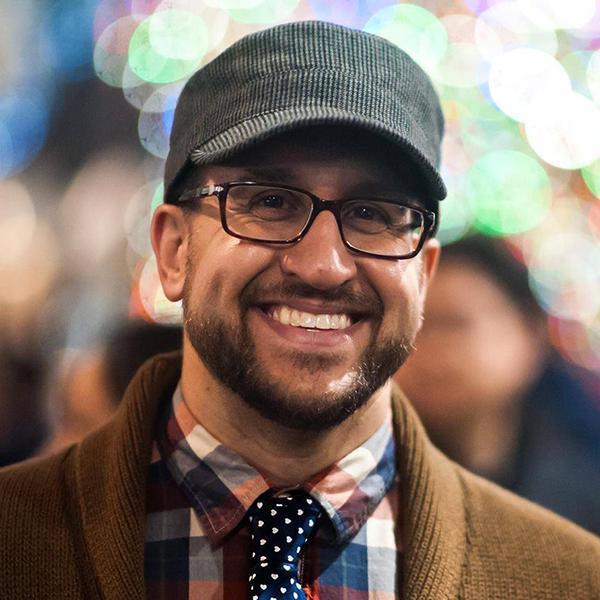
Paul J. Schutz (Religious Studies) delivered a keynote address entitled "Living the Gospel: Our Call to Care for Creation," at the virtual 2020 Ignatian Family Teach-In for Justice. The address discusses how the "technocratic paradigm" promotes indifference, fueling a socio-ecological crisis that threatens the lives of all of Earth's creatures—human and otherwise. On a deeper level, Schutz argues, this crisis stems from humanity's inability to perceive its interconnectedness with the rest of the universe. After illustrating the nature and origins of the crisis, this keynote offers resources for formulating a "creation imagination" oriented toward justice for all creation. Drawing on Ignatian spirituality and the witness of the martyrs of El Salvador, this address concludes by suggesting some concrete steps for reorienting our vision and taking action for ecological and social justice.
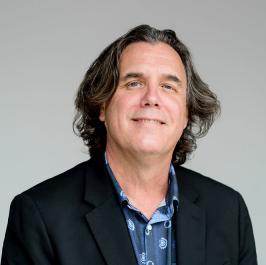
John Kennedy's (Music) music was included in Pacific Northwest Ballet's season-opening digital program. An excerpt from the ballet "One Body" used Kennedy's music of the same title, with choreography originally made by Albert Evans of New York City Ballet for Peter Boal.
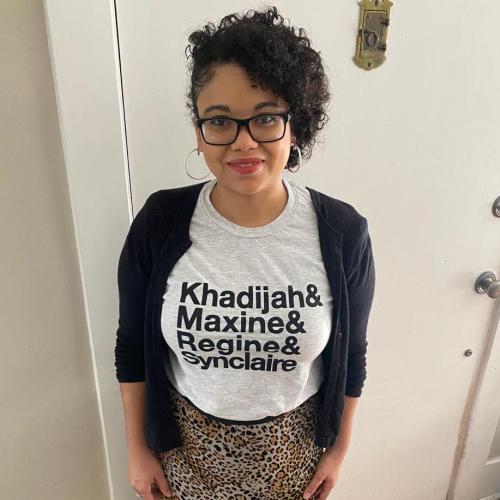
Danielle Morgan (English) gave a keynote for the University of Texas entitled "'True Blue, It's Tight Like Glue': Sisterhood as Self-Making in Living Single, Girlfriends, and Insecure." In this talk, she discussed the real-life impact of Black female friendships and fictive kinships in popular culture for Black female audiences in the 1990s and beyond. Focusing on Black Feminism as praxis, Danielle argued that these shows—created by, focused on, and starring Black women—move from a politics of respectability to a poetics of reality by refusing the predominant white gaze and instead demonstrating the resilient and self-affirming communities that Black women create with each other. This talk was in observance of the National Young Women's Day of Action and sponsored by the University of Texas Gender and Sexuality Center, the John L. Warfield Center for African and African American Studies, and the Moody College of Communication.

Travis Stevens (Religious Studies) has released a podcast called Seven Heads Ten Horns with co-host Klaus Yoder of Vassar College. This new history podcast explores the origins, development, and continuing influence of the Devil in Western cultures, and features episodes on a wide variety of related topics, including: the serpent in the garden of Eden; half-angel, half-human giants from the book of Genesis; demonically possessed nuns in 18th-century France; Christian, vegetarian, sexually-abstinent heretics; and the iconic anti-hero Satan from John Milton’s Paradise Lost. Just in time for Halloween, the podcast features two special episodes: a Halloween movie special that discusses the figure of the devil in Hereditary (2018) and Nightmare on Elm Street (1984), as well as a history of Halloween and its roots in Celtic and Christian traditions.
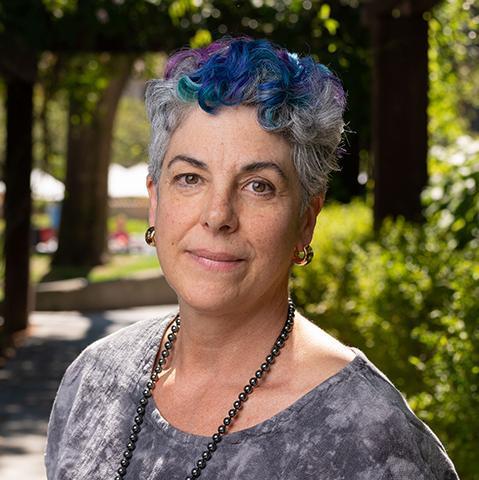
Andrea Pappas (Art & Art History) presented a paper at the Annual Symposium of the Textile Society of America, "Embroidered Landscapes and Women’s Hidden Knowledge of Nature in British North America." Elite British women of the eighteenth century were encouraged to study nature because it was thought to extend their innate interest in dress and decorative pursuits—such as embroidery. Cadwallader Colden, writing to the Dutch botanist Gronovius in 1755 about his daughter Jane, opens his letter thus: “… Botany is an Amusement which may be made agreeable for the Ladies who are often at a loss to fill up their time if it could be made agreeable to them. Their natural curiosity & the pleasure they take in the beauty & variety of dress seems to fit them for it.” However, Eliza Hayworth, in The Female Spectator, recommended that women engage in the pursuit of natural science not because nature produces pretty organisms or to fill empty hours, but because “nothing is … more profitable to the mind.” Close looking at embroidered representations of plants and insects tells us that some early American women indeed engaged in “botanizing” behavior – close observation of individual specimens, plant and insect. Further, these represented species are specifically found in North America where these women resided, not in Europe, and therefore are not copied from other sources. Andrea's paper recovers evidence of their interests in natural history by examining these women's embroidered textiles.

Jerry Burger's (Emeritus, Psychology) short story, "Home Movie," has been selected for inclusion in the Best American Mystery Stories 2020 (Houghton Mifflin Harcourt). The series editors select 20 stories for the anthology from among all stories published in the United States and Canada the previous year. The criterion for a "mystery story" is that a crime must play a central role in the story. Thus, many stories in the collection, like Jerry's, are taken from literary magazines.

Tom Plante (Psychology) published a new textbook. The newly revised 4th Edition of Contemporary Clinical Psychology delivers a comprehensive and engaging view of the science and practice of clinical psychology. From a variety of different perspectives and in numerous settings, the book presents a realistic survey of the field of clinical psychology, including its history, employment opportunities, significant theoretical underpinnings, practice instructions, and guidelines for how to conduct and interpret research in this rapidly evolving area.
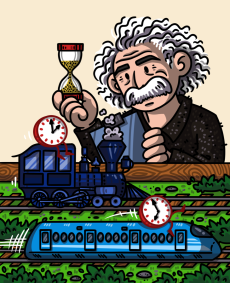
Illustration by Petra Korlevic
Mehdi Ahmadi (Mathematics & Computer Science) and Alexander Smith of Saint Anselm College and Dartmouth College published a paper in Nature Communications last week. The research has attracted media attention and it was covered by Scientific American and several other news outlets. The team investigates a rare marriage of two successful physical theories of the twentieth century: quantum mechanics and relativity. Einstein’s special theory of relativity predicts a phenomenon known as time dilation, which states that as a clock’s velocity increases, it ticks at a slower rate. On the other hand, according to the quantum superposition principle, a quantum system can be prepared in superposition, that is, it can be in two different states at the same time. In particular, a quantum clock can be in a superposition of two velocities, which means it can be moving at both velocities simultaneously. The study explores whether the time dilation effect can be measured using a quantum clock and if so, whether it is exactly as predicted by Einstein’s theory. Their new theoretical findings suggest that quantum clocks can observe time dilation, however, there needs to be a correction to account for the quantum nature of the clock. The authors hope that these results will encourage experimental groups to implement their proposed experiment in the lab.
Chad Raphael (Communication) organized a session entitled “Another Just Transition: Community-Engaged Research and Learning for Environmental Justice” for the annual conference of the Association for Advancement of Sustainability in Higher Education (AASHE) on October 20. Chad’s co-presenters from the University of Wisconsin - Milwaukee – Kate Nelson, Willie Karidis, and Chelsea Wait -- discussed their research collaborations with Milwaukee community partners on equitable access to bike lanes and community-led development in majority Black neighborhoods. Chad presented on the value of community-driven research for producing actionable knowledge about environmental justice, which is the subject of his forthcoming open access book from the University of California Press - Luminos. The book will expand on the research guide Chad wrote for a 2019 conference organized by SCU’s Environmental Justice and the Common Good Initiative. Chapters will be co-authored with early-career BIPOC researchers (including the Initiative’s Zsea Bowmani) to help expand and connect the community of environmental justice researchers.

Lisa Whitfield (Psychology) and Katy Bruchmann (Psychology) gave a keynote address about the science of implicit bias for the software company Celonis. The event, organized by Women@Celonis and Dina Tzonev '15 (Psychology) hosted 100 guests from around the world.

On October 9, 2020, The Environmental Justice & Common Good Initiative (EJCG) at SCU, jointly with collaborators at San Jose State University and Stanford University, hosted the panel “Learning about 15 years of multi-sector funding of community-academic partnerships in the South Bay”. The core planning team included Iris Stewart-Frey (Environmental Studies & Sciences and EJCG) and Maria Eugenia Flores-Gomez (EJCG). The panel discussion focusing on environmental justice funding and government partnerships was an inspiring session on SJSU's funding model for CommUniverCity, their anchor institution program working in partnership with the City of San Jose. CommUniverCity is a nationally recognized place-based community-engaged learning model that operates in an about 1.5-mile radius around SJSU. It has been working with San Jose City and other organizational partners for 15 years. With a $670,000 annual budget, they are able to involve 5,000+ low-income residents and 1,700 SJSU students per year in a long-term investment responding to community priorities. During the panel, the presenters shared how they have successfully funded their own EJ work and attendees identified common challenges that they should address moving forward and how to improve collaboration. The panelists included Katherine Cushing (CommUniverCity’s Executive Director), Imelda Rodriguez (CommUniverCity’s Community Director), and Michael Gonzalez (City of San Jose Environmental Services).
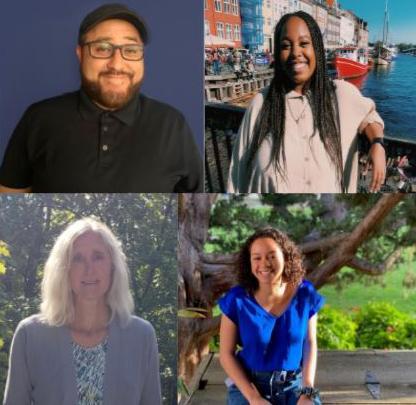
On Oct 7&9 2020, Iris Stewart-Frey (Environmental Studies & Science) and community partner Edgar Garibay (Tuolumne River Trust) gave a bilingual presentation on "Community data creates positive outcomes" to two workshops of community advocacy groups in the Northern San Joaquin Valley. Maps for this presentation were made by student researchers Chloe Gentile Montgomery '21 (Environmental Science and Ethnic Studies) and Meghan Adams '21 (Environmental Science and Ethnic Studies). The presentation highlighted that data collected, analyzed, and presented by communities and on the community, may support advocacy for positive change and included example maps from the Modesto region that Chloe and Meghan created. Photo: Top left: Edgar Garibay, top right: Meghan Adams, lower left: Iris Stewart-Frey, lower right: Chloe Gentile-Montgomery.
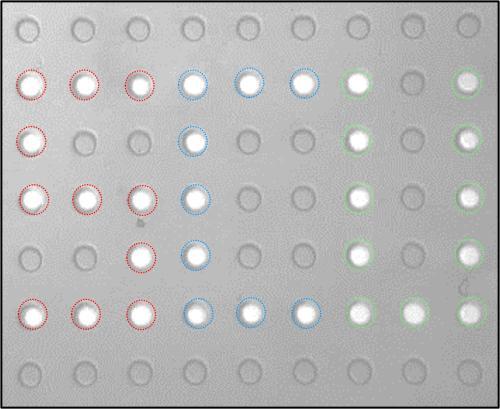
Paul Abbyad (Chemistry and Biochemistry) has just published a peer-reviewed research paper in the journal Micromachines titled: "Method for Passive Droplet Sorting after Photo-Tagging". The sorting of desired microfluidic droplets is a basic operation for many chemical and biological assays. The paper presents a novel method to “tag” picoliter droplets with light for later selection. This enables the sorting of droplets of interest on a large variety of signals, or based on qualitative user-defined features. SCU co-authors are Chandler Dobson '21 (Biochemistry), Claudia Zielke (Chemistry & Biochemistry), Ching Pan '18 (Biochemistry; 8th SCU publication!), and Cameron Feit '21 (Biology). Photo: “S” “C” “U” written with microscopic droplets.

Psychology faculty Kirsten Read, Kathryn (Katy) Bruchmann, Birgit Koopmann-Holm, and Kieran Sullivan, along with 23 psychology majors and alumni, presented papers and posters at the Western Psychological Association annual conference in October. Kirsten's presentation was about helping Spanish/English bilingual preschoolers learn new vocabulary through different types of bilingual storybooks; she co-presented with Olivia Hauer-Richard '19 (Psychology), Vivian Vo '20 (Biology) and Eileen Vu '21 (Psychology). Katy's delivered a talk about moral social comparisons and co-presented posters on topics ranged from body image to narcissism to political bias with Amanda Dunning '21 (Psychology), Bianca Gonzalez '21 (Child Studies and Psychology), Sarah Zasso '22 (Psychology and Communication), Kahana Wong '21 (Psychology), Lindsay Baerg '21 (Psychology), Liya LaPierre '20 (Psychology), Alexandra Folks '20 (Psychology and Political Science), and Elena Robles '20 (Psychology and Spanish Studies). Birgit presented a paper, “Understanding the first step to a compassionate response: Predictors of noticing someone’s pain” and co-presented posters with Aldo Caballero ‘20 (Psychology), Ben Davidson ‘20 (Philosophy and Psychology), Ahuti Goyal ‘20 (Psychology), Jasmyn Burdsall ’20 (Psychology), Emilia Savini ’20 (Psychology), Pablo Olavarrieta ’21 (Marketing and Psychology), Sofia Sandoval Larco ’21 (Psychology), Jia Seow ’22 (Psychology), and Roman Bakhtin ’19 (Marketing and Psychology). Kieran co-presented a poster about social media and dating relationships with Lauren Larson '20 (Psychology and Child Studies), Chloe Coppola '20 (Psychology), Jordon Fahey '21 (Psychology), and Uma Ramesh '20 (Psychology).

Madison Rodriguez '21 (Public Health Science and Anthropology) presented an oral presentation at the American Public Health Association Annual Meeting (held virtually) in the Caucus on Homelessness. Through the support of the DeNovo fellowship program, Madison presented research conducted in collaboration with the San Francisco Coalition on Homelessness entitled "Community assessment of substance use treatment experiences and needs among homeless people in San Francisco." This research was conducted under the supervision of her DeNovo mentor, Jamie Chang (Public Health).

Michelle Mueller (Religious Studies) gave virtual presentations for the 3rd International Conference on Gender and Sexuality and for the Society for the Scientific Study of Sexuality Annual Meeting. The work is titled, “Polyamory as Religious Sexual Counter-Culture: The New Charmed Circle," and is a summary of a chapter from Mueller’s book manuscript (in preparation for Routledge). The work interprets links between polyamory and alternative spiritual practices of Paganism and (Neo)Tantra through Gayle Rubin’s theory of the Charmed Circle and its Outer Limits. Mueller pushes beyond existing researcher interpretations about the reasons for shared membership across polyamory and alternative religions and argues that combining consensual non-monogamy with alternative religions, as well as non-conforming gender identities (genderqueer and non-binary) and sexual orientations (pansexual, omnisexual, queer, and kinky), is an act of re-territorializing on the sexual values system map. The paper seeks to critically examine implicit relationships between sexual orientation, racial expression, religious affiliation, and political identity using a queer theoretical lens.
College of Arts and Sciences Calendar
|
| College of Arts and Sciences |
Questions? Contact Sandy Boyer |
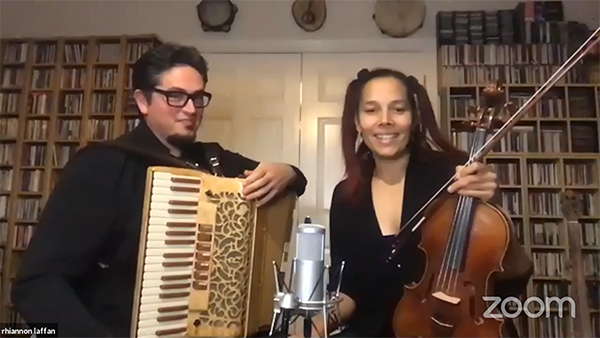
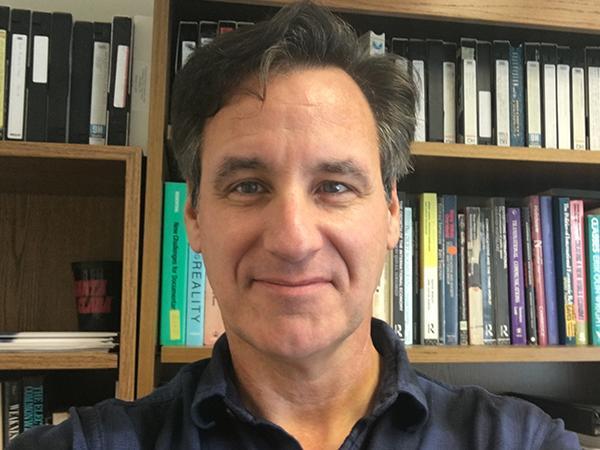 Chad Raphael
Chad Raphael Zsea Bowmani
Zsea Bowmani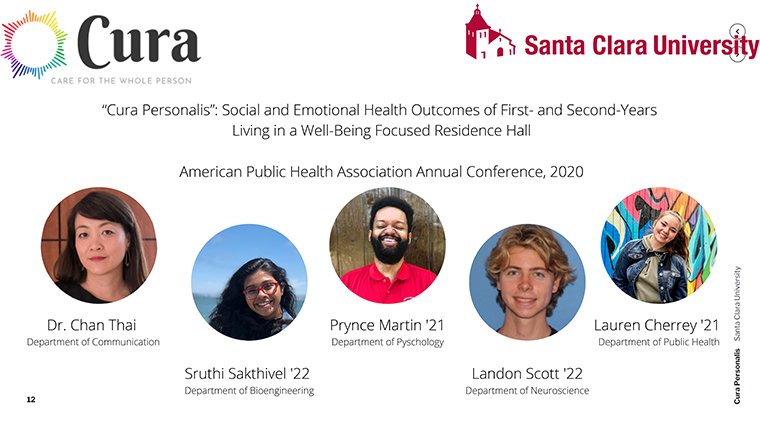 Chan Thai (Communication) presented a study entitled "cura personalis": Social and Emotional Health Outcomes of First- and Second-Years Living in a Well-Being Focused Residence Hall at the (virtual) American Public Health Association (APHA) Annual Conference in October 2020. She represented a team of students, Sruthi Sakthivel '22 (Bioengineering), Prynce Martin '21 (Psychology), Landon Scott '22 (Neuroscience), and Lauren Cherrey '21 (Public Health Science & Economics), who all served as Community Facilitators (CFs) in Cura RLC during its inaugural year (2019-2020). The study assessed the mental health outcomes of 1st and 2nd-year residents living in Cura RLC at the end of their first quarter (Fall 2019). The team found that Cura RLC students experienced anxiety, depression, feelings of overwhelm, loneliness, and sadness less recently compared to data from 1st and 2nd-year students in the general SCU population. The results of the study provide initial evidence that the programming model of Cura RLC, which revolves around 8 dimensions of well-being and focuses on providing programming on a consistent weekly schedule, may be effective in helping 1st and 2nd-year students manage the emotional and social challenges of adjusting to college life.
Chan Thai (Communication) presented a study entitled "cura personalis": Social and Emotional Health Outcomes of First- and Second-Years Living in a Well-Being Focused Residence Hall at the (virtual) American Public Health Association (APHA) Annual Conference in October 2020. She represented a team of students, Sruthi Sakthivel '22 (Bioengineering), Prynce Martin '21 (Psychology), Landon Scott '22 (Neuroscience), and Lauren Cherrey '21 (Public Health Science & Economics), who all served as Community Facilitators (CFs) in Cura RLC during its inaugural year (2019-2020). The study assessed the mental health outcomes of 1st and 2nd-year residents living in Cura RLC at the end of their first quarter (Fall 2019). The team found that Cura RLC students experienced anxiety, depression, feelings of overwhelm, loneliness, and sadness less recently compared to data from 1st and 2nd-year students in the general SCU population. The results of the study provide initial evidence that the programming model of Cura RLC, which revolves around 8 dimensions of well-being and focuses on providing programming on a consistent weekly schedule, may be effective in helping 1st and 2nd-year students manage the emotional and social challenges of adjusting to college life.
